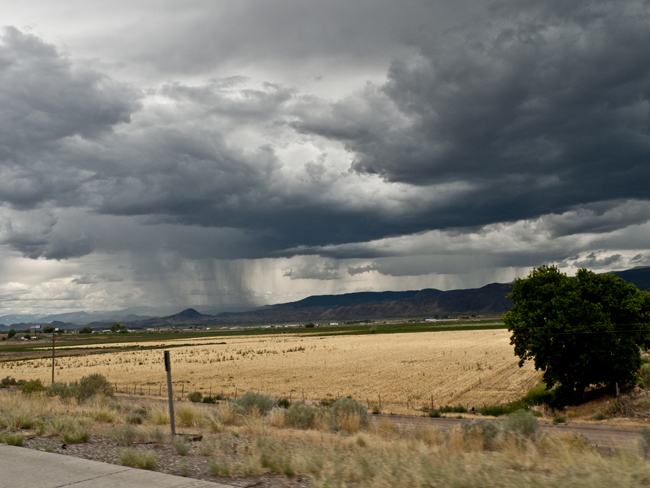This article was imported from our previous website, which many have broken some of the content. We apologize in advance for any strange formatting or broken links you may find.

“In God I trust; I shall not be afraid. What can man do to me?” – King David (Psalm 56:11)
Is it not true that when we look back in the rear mirror of our lives we most often can see what God was up to? The difficult situations, the setbacks, the seasons of life that seemed unbearable are now over, and we recognize God’s provision and protection through it all. We identify the transformation in our lives that was necessary during the period of trial, and we are grateful for God’s grace and discipline to shape us into His image. How often I have offered praise in hindsight for what God was up to because I was able to see the fruit in my life as a result.
And yet when the next trial comes, when the next season of difficulty arises, somehow I forget the past and get caught up in the present. I find myself swallowed up by fear and worry and uncertainty about what is occurring. I have a lapse in memory and forget that I gain nothing by worrying about tomorrow; I lose sight of the perspective that the present is only momentary. I am seized with trepidation and anxiety. Am I the only one that does this? I doubt it.
It is in those moments of my life that I take comfort and heed in the Scriptures. It is then that I make a beeline for the Psalms and take in the words of men like David, a man who was often in harm’s way, who was often the target of others, and who was often dealing with the trials of life. I see a pattern in his words; I see a man whose first response is to cry out to the one who hears and cares: “Be gracious to me, O God” (Psalm 56:1). Other versions use the word “merciful.” The intent is clear: our lives are in peril and we need a Rescuer. Good news. God is the one who provides deliverance from sin and sorrow. He is the one who deals with our grievances and our griefs, and He is the one who saves us from others and ourselves.
Upon further study I am reminded that fear is natural and not necessarily bad. Often we assume that as followers of Christ we should never fear, and if we do that reveals a lack of faith. Yet even Jesus in the garden admits to His disciples that He is “sorrowful and troubled” (Matthew 26:37). He is honest and real about His feelings and the pain, suffering and rejection that is to come.
David also comes clean when he admits, “when I am afraid” (Psalm 56:3). It is not the initial fear that counts; it is what becomes of that fear that matters. For Jesus, His fear leads Him to obedience: “Not as I will, but as you will” (Matthew 26:39). For David, it was faith: “In God I trust” (Psalm 56:11). Fear did not overwhelm or consume either of them, and it shouldn't do that to us.
Charles Spurgeon wrote of Psalm 56, “Faith exercised, fear banished, and holy triumph ensues.” In our own lives and the lives of others, there will always be trials, troubles and tribulations. Yet in the midst of such times, we can trust the one who has delivered us. We can “walk before God in the light of life” (Psalm 56:13) and live in freedom, grow in holiness, and act in service so that the world around us can also put their trust in Him who is worthy.